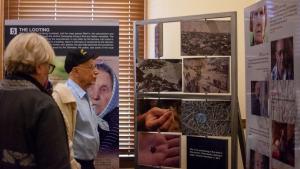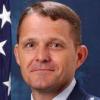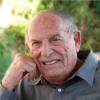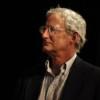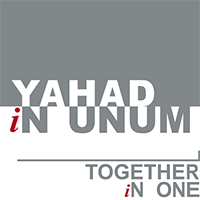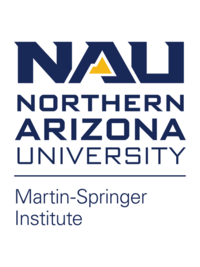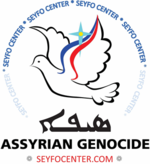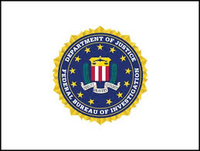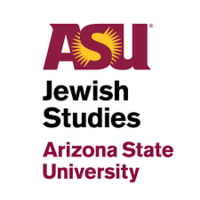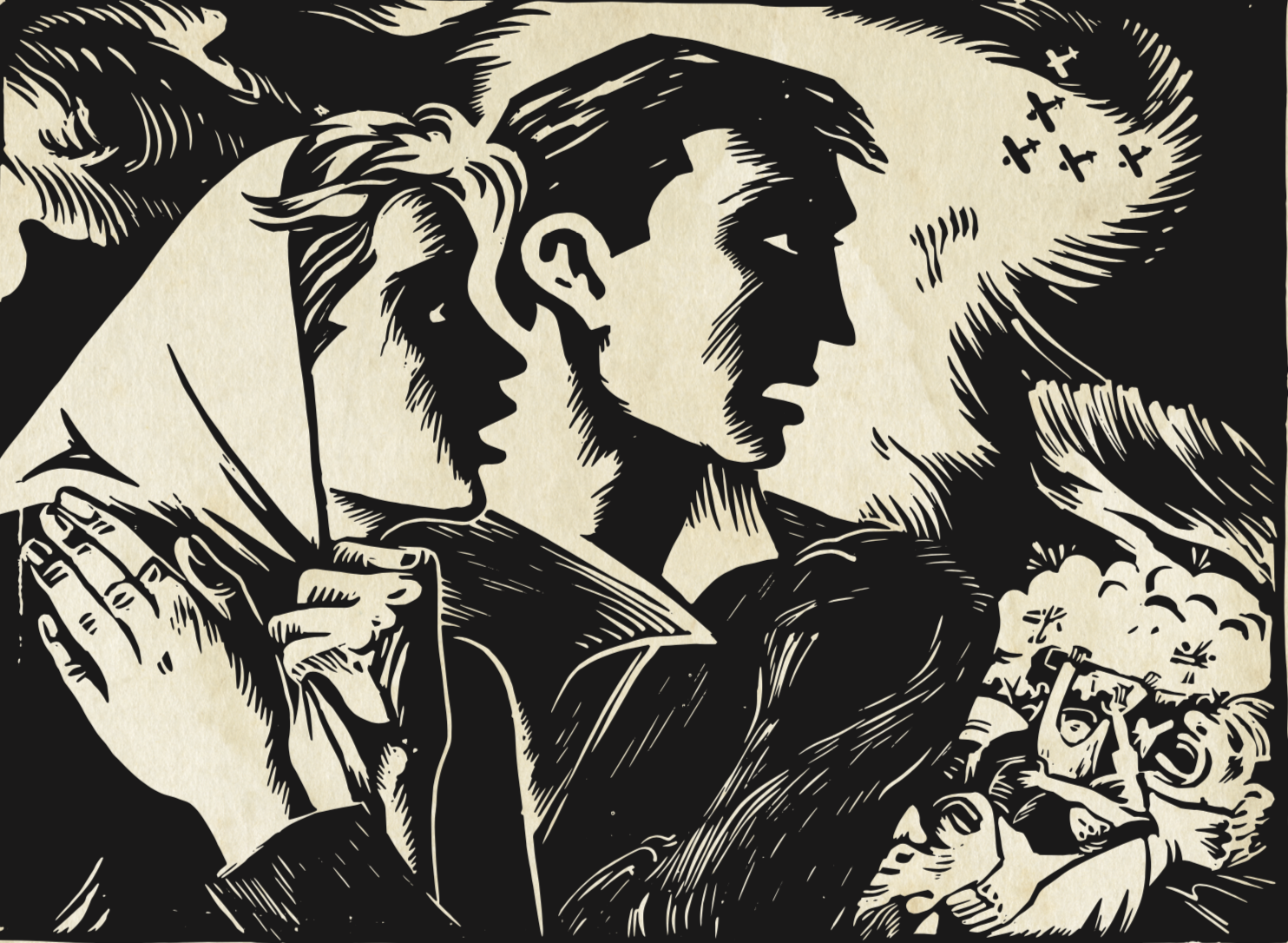
Genocide Awareness Week
April 4-9, 2022
10-year anniversary
#NotOnOurWatch #GAW2022
Not on Our Watch
The 10th Rosenbluth Family Charitable Foundation Genocide Awareness Week, held April 4-9, 2022, is a series of lectures, exhibits and storytelling by distinguished survivors, scholars, politicians, activists, artists, humanitarians and members of law enforcement. This week-long event seeks to address how we, as a global society, confront violent actions and current and ongoing threats of genocide throughout the world, while also looking to the past for guidance and to honor those affected by genocide.
Photo by Robert Sutz

Holocaust by Bullets Exhibit
This compelling exhibition presents the results of decades of research in Eastern Europe by Father Patrick Desbois and his foundation (Yahad-In Unum). It underscores "Holocaust by Bullets," the mass shootings of Jews and others that took place throughout Eastern Europe by the Nazi mobile killing units from 1941 to 1944 as a precursor and model for mass murder crimes today. This exhibit pays homage to the memories of the victims while seeking to promote a proactive movement against genocide. It's free and open to the public.
Photo info: George Kalman reads the testimonies of villagers who witnessed the murder of their Jewish neighbors. Photo by Eileen O' Brien.
Docent-led tours will take place on Mondays from 5-7 p.m. and Sundays from 1-3 p.m. There will not be tours on April 17 due to the holiday.
Hayden Library at Arizona State University, 300 E Orange Mall, Tempe, AZ 85281
Exhibit Opening
February 27, 2022
3 p.m. - 5 p.m.
Guest Speaker, Rachael Cerrotti, author of We Share the Same Sky
Rachael Cerrotti, is an award-winning author, photographer, educator and audio producer. Her work explores the intergenerational impact of war and the inheritance of memory. She is currently the Inaugural Storyteller in Residence for USC Shoah Foundation where she produces and co-hosts The Memory Generation podcast.
In 2019, Rachael released her first podcast — We Share The Same Sky. It was the first-ever narrative podcast based on a Holocaust survivor’s testimony and tells the story of her decade-long journey to retrace her grandmother’s war story. We Share The Same Sky was listed as one of the best podcasts of the year by HuffPost, a Reader’s Pick by Vulture Magazine and as a “Show We Love” by Apple Podcasts; it is now being taught in high school classrooms around the world. Her critically-acclaimed debut memoir, also titled We Share The Same Sky, was released in August 2021. It received a starred review from Publisher’s Weekly and was listed as one of the best books of the month by Apple Books.
BJE Holocaust Educators Conference
4:15 - 4:30 p.m.
Registration and Welcome for those attending in person
4:30 - 5:20 p.m.
The Quest for Truth about the Holocaust by Bullets in Lithuania
Grant Gochin
Grant Gochin is actively involved in Jewish affairs, focusing on historical justice. He has spent the past thirty years documenting and restoring signs of Jewish life in Lithuania. He has served as the Chair of the Maceva Project in Lithuania, which mapped/inventoried/documented / restored over fifty abandoned and neglected Jewish cemeteries. Gochin is the author of “Malice, Murder and Manipulation”, published in 2013. His book documents his family history of oppression in Lithuania.
5:25 - 6:25 p.m.
Session 1 with four presentations:
"I Only Have Five Days"
Bjorn Krondorfer, PhD
Testimony by Holocaust Survivor
Ben Lesser
Featured guest, Holocaust Survivor Ben Lesser, recounts what it was like to be a survivor of four Nazi concentration camps, two death trains, and two death marches. He recounts what it was like to be lashed 25 times at Auschwitz and to be the last survivor of the death train from Buchenwald to Dachau. Ben discusses his book, “Living a Life that Matters: from Nazi Nightmare to American Dream,” and provides powerful message of hope.
Contemporary Antisemitism from the Far Left and the Far Right
Alex Alvarez, PhD
Holocaust Literature focusing on the book: The Happiest Man on Earth: The Beautiful Life of an Auschwitz Survivor by Eddie Jaku
Kim Klett
6:35 - 7:25 p.m.
We Share The Same Sky
Rachael Cerrotti
Fellow at USC Shoah Foundation
In this session, documentary storyteller Rachael Cerrotti, will tell the story of the Rescue of the Danish Jews through the experience of her grandmother, Hana Dubova, who was the only Holocaust survivor in her family. Hana escaped Nazi-occupied Czechoslovakia for Denmark in 1939 at the age of 14 and Rachael has spent over a decade retracing her history. Using photography, video, audio and personal storytelling, Rachael will show how teaching history with modern media and through a contemporary lens can empower students to reflect on their own individual actions and family histories.
Rachael Cerrotti is the keynote speaker for Holocaust by the Bullets Opening Exhibit and BJE Holocaust Educators Conference. She is an award-winning author, photographer, educator and audio producer as well as the inaugural Storyteller in Residence for USC Shoah Foundation. Her work explores the intergenerational impact of war and the inheritance of memory. For over a decade, she has been retracing her grandmother’s Holocaust survival story and shares this journey in her critically-acclaimed podcast and debut memoir, both titled We Share The Same Sky. Rachael’s work is now taught in classrooms and communities worldwide. Learn more at: www.rachaelcerrotti.com & www.sharethesamesky.com
7:30 - 8:30 p.m.
Session 2 with four presentations:
"I Only Have Five Days"
Bjorn Krondorfer, PhD
Contemporary Antisemitism from the Far Left and the Far Right
Alex Alvarez, PhD
Teaching the Holocaust Comparatively
Volker Benkert, PhD and Jason Bruner, PhD
The Holocaust in the Lands of the Sephardic Diaspora- Greece, the Balkans, N. Africa, etc...
Stanley Mirvis, PhD
Genocide Awareness Week Schedule
5 p.m.
Online
Drunk with Genocide. Drinking Rituals and the Intoxication of Mass Murder in Nazi Germany
Edward Westermann
Texas A&M-San Antonio
How did Nazi paramilitaries use song and music to build camaraderie and a sense of shared purpose? Discover the answer, and examine how music became integrated into acts of humiliation, physical and sexual abuse, within the concentration camps and in the occupied eastern territories. The incorporation of music and song to acts of murder and post-killing celebrations provides important insights into the mindset of the perpetrators.
9:05 – 9:55 a.m.
Memorial Union, Alumni Lounge (Room 202) and Online
Respect and Being an Upstander
Oskar Knoblauch
Holocaust Survivor
My name is Oskar Knoblauch. I was born in Leipzig Germany in 1925. In 2010, I self-published my book, A Boy’s Story A Man’s Memory-Surviving the Holocaust 1933-1945. I am currently an active public speaker and a board member of the Phoenix Holocaust Survivors' Association. My campaign urges students, teachers and adults of all ages to proactively teach and promote Holocaust education. I also stress the importance of respect, tolerance and to be an upstander... to stand up and speak out for what is right! Together, I believe we can work in harmony to be the voice of tolerance in our hearts, our communities, our country and the world.
10:10 – 11 a.m.
Memorial Union, Alumni Lounge (Room 202) and Online
Ethnocide and the Role of Native American Boarding Schools
Dr. Stefanie Kunze
Northern Arizona University
Stefanie Kunze holds a PhD in political science and is a lecturer in the Department of Sociology at Northern Arizona University. Dr. Kunze specializes in perpetrators of genocide and ethnocide, Native American history and political, societal and social challenges. Her current work is focused on perpetrators of ethnocide in Native America, as well as policy responses to pandemic-related needs in tribal communities.
11:15 a.m. – 12:05 p.m.
Memorial Union, Alumni Lounge (Room 202) and Online
The impact of the declaration of Jihad 1914, and the participation of the Kurds in the Assyrian genocide of 1915
Sabri Atman
The University of Texas at Dallas
Mr. Atman was born in Arbo, Nisibin (Tur Abdin, Assyria) in southeastern Turkey in the indigenous lands of the Assyrians. He moved to Austria due to political reasons and then to Sweden five years later. He received his first master’s degree in economics from the University of Gothenburg. He also received his second master’s degree in Human rights and Genocide studies from Kingston University in London, University of Siena in Italy, University of Warsaw in Poland and Frankfurt University in Germany. His third master's degree is in History from Clark University in Massachusetts. Mr. Atman is the founder and director of the Assyrian Genocide Research Center (SEYFO Center) and is currently doing his PhD in History at the University of Texas, Dallas.
12:20 – 2 p.m.
Memorial Union, Alumni Lounge (Room 202) and Online
Comparative Panel 1: Memory and Denial
Panelists
Dr. Henry Theriault
Worcester State University
Henry C. Theriault is Associate Vice President for Academic Affairs at Worcester State University, after teaching in its Philosophy Department from 1998 to 2017, which he chaired from 2011 to 2017. He coordinated the university’s Center for the Study of Human Rights from 1999 to 2007. He has spoken and published widely on mass violence against women and girls and genocide perpetration, denial, victim-perpetrator relations, and prevention. He was lead author of Resolution with Justice: The Report of Armenian Genocide Reparations Study Group (2015). With Samuel Totten, he co-authored The United Nations Genocide Convention: An Introduction (University of Toronto Press, 2019). Theriault served as International Association of Genocide Scholars President from 2017 to 2021. Since 2013, he has been founding co-editor of Genocide Studies International, and co-edited Genocide Studies and Prevention from 2007 to 2012.
Dr. Timothy Langille
Arizona State University
Timothy Langille specializes in Jewish history, memory studies, trauma studies and genocide studies. He teaches courses on Hebrew Bible, Jewish history and genocide.
Dr. Stefanie Kunze
Northern Arizona University
Stefanie Kunze holds a PhD in political science and is a lecturer in the Department of Sociology at Northern Arizona University. Dr. Kunze specializes in perpetrators of genocide and ethnocide, Native American history and political, societal and social challenges. Her current work is focused on perpetrators of ethnocide in Native America, as well as policy responses to pandemic-related needs in tribal communities.
Moderator: Dr. Volker Benkert
Arizona State University
Volker Benkert studied history and English at the Universities of Bonn, Edinburgh, St. Petersburg, and Fribourg. He graduated with a master's degree from the University of Bonn and a doctorate from the University of Potsdam. His research focuses on the impact of sudden regime change on biographies in 20th century Germany and Europe. In addition to relying on traditional sources, he utilizes extended biographical interviews. Furthermore, he is interested in the formation and function of discourses on the totalitarian past on an individual and collective level. Identifying pervasive discourse patterns particularly among ordinary Germans helps to reveal the transmission of often apologetic views of the past over generations.
2:15 – 3:20 p.m.
Memorial Union, Alumni Lounge (Room 202) and Online
State Department's Justice for Uncompensated Survivors Today -- "JUST" Act Report
Cherrie Daniels
United States Department of State
Cherrie Daniels is a career member of the Senior Foreign Service. She served as the Special Envoy for Holocaust Issues in the State Department from 2019-2021 and is now in full-time German language study en route to her next posting at the U.S. Embassy in Berlin. Cherrie joined the State Department in 1993. Prior to her assignment as Special Envoy, she served as Director of the Executive Secretariat Staff in the Office of the Secretary of State, Political Counselor at the U.S. Embassy in Belgrade, and Political/Economic Counselor at the U.S. Embassy in Oslo. She was a State Department detailee to the White House in 2012-2013, where she served in the Office of the Vice President as Special Advisor for Europe and Russia. Earlier in her career, Ms. Daniels served as the Director of the U.S. Embassy’s American Center in Jerusalem and as a Pearson Foreign Affairs Fellow in the office of Senator Joseph Lieberman. In 2006, she earned the Secretary of State’s Swanee Hunt Award for Advancing Women’s Role in Policy Formulation in recognition of her work to promote the participation of women as peacemakers in the Israeli-Palestinian conflict. Hailing from Richardson, Texas, Ms. Daniels earned a BA from Princeton University and a Master of Science in foreign service from Georgetown University.
__
Prior to Cherrie Daniels' talk will be a video greeting by Ambassador Stuart Eizenstat.
Ambassador Stuart E. Eizenstat serves as Special Adviser on Holocaust Issues to Secretary Blinken. He is a former Deputy Secretary of the Treasury, Under Secretary of State for Economic Affairs, Under Secretary of Commerce for International Trade, and Ambassador to the European Union. Currently, he is with the law firm of Covington & Burling.
3:45 – 5 p.m.
Memorial Union, Alumni Lounge (Room 202)* and Online
The Holocaust in Poland
Dr. Jan Grabowski
University of Ottawa, Canada
Jan Grabowski is a Professor of History at the University of Ottawa and a Fellow of the Royal Society of Canada. His interests focus on the Holocaust in Poland and, more specifically, on the relations between Jews and Poles during the war. Professor Grabowski’s book: Hunt for the Jews. Betrayal and Murder in German-Occupied Poland has been awarded the Yad Vashem International Book Prize for 2014. In 2020 Grabowski has been appointed a Distinguished Fellow at the Institut für Zeitgeschichte in Munich, Germany. In 2018 he co-edited and co-authored “Dalej jest noc” [Night Without End] (a two-volume study of the fate of the Jews in selected counties of occupied Poland), to be published later this year in English by Indiana University Press. His most recent book “On Duty. The Role of the Polish “Blue” Police in the Holocaust” (“Na Posterunku. Udział Polskiej Policji Granatowej i kryminalnej w Zagładzie Żydów”, Czarne Publishing House), has been published in Poland, in March 2020.
*This speaker will be presenting virtually and broadcast into the room.
5 - 6 p.m.
Rural Street Klezmer Band Concert
Between The Memorial Union and Hayden Library, ASU Tempe Campus
Keynote Speaker
6:30 – 8 p.m.
Memorial Union, Arizona Ballroom (Room 221) and Online
Holocaust by Bullets and Relevance to Modern Genocides
Father Patrick Desbois
Yahad-In Unum
Father Patrick Desbois is a distinguished author, university professor, historian, forensic detective and world-renowned human-rights activist. He has dedicated his life to fighting the bigotry that fuels the disease of genocide and bridging the divide between faiths. His ongoing work brings closure to the victims and survivors of genocide and calls for legal justice for the perpetrators.
He is the founder of Yahad-In Unum (“Together In One”), a non-profit organization dedicated to discovering genocidal practices wherever they are found around the world, providing documented proof of crimes against humanity, and a leading voice of protest on behalf of all past and present victims of mass murder.
In 2015, he became a Braman Endowed Professor of the Practice of the Forensic Study of the Holocaust at the Center for Jewish Civilization of Georgetown University. He has received numerous honors for his groundbreaking work, including the Humanitarian Award from the US Holocaust Museum and the 2017 Lantos Human Rights Prize. Very notably, Yahad-In Unum and Father Desbois have been lauded by world leaders including Pope Francis as well as French President, Emmanuel Macron, who awarded him the Légion d’honneur, France’s highest honor, for his work documenting the Holocaust.
__
The Phoenix Boys Choir will perform a short concert as the prelude to Father Desbois presentation.
The Phoenix Boys Choir provides choral music training, education, performance opportunities and learning experiences that instill excellent musicianship and critical values in young people. Our program develops responsible, caring, creative young people who will be our future leaders and citizens endowed with a passion for the performing arts and community.
9 – 10:15 a.m.
Memorial Union, Alumni Lounge (Room 202)
The Assyrian Genocide: Historical Overview and Analysis
Dr. Anahit Khosroeva
Institute of History, National Academy of Sciences, Republic of Armenia
Professor Anahit Khosroeva is an Assyrian human rights defender and genocide scholar born in Armenia. She is a leading researcher at the Department of Armenian Genocide Studies in the Institute of History, Armenian National Academy of Sciences. Dr. Khosroeva is the author of a dozen research books and monographs, as well as numerous articles on the history of the Armenian/Assyrian/Greek genocide during the Ottoman period (1894-1923) in various languages. Her research interests include comparative genocide studies and human rights. She has presented at various worldwide academic and political conferences. On March 24, 2015, with the continuous efforts of Dr. Khosroeva, a month before the commemoration of the centennial of the Armenian Genocide, the National Assembly of the Republic of Armenia unanimously passed a resolution recognizing the Greek and Assyrian genocide committed by the Ottoman Empire during 1915-1923. For her outstanding services, Dr. Khosroeva has received numerous awards and state medals. Today she continues to be an active voice in bringing further awareness, recognition and justice for the Assyrians and Armenians using international human rights law.
10:30 a.m. - 12 p.m.
Memorial Union, Arizona Ballroom (Room 221) and Online
Father Patrick Desbois
Yahad-In Unum
Father Patrick Desbois is a distinguished author, university professor, historian, forensic detective and world-renowned human-rights activist. He has dedicated his life to fighting the bigotry that fuels the disease of genocide and bridging the divide between faiths. His ongoing work brings closure to the victims and survivors of genocide and calls for legal justice for the perpetrators.
He is the founder of Yahad-In Unum (“Together In One”), a non-profit organization dedicated to discovering genocidal practices wherever they are found around the world, providing documented proof of crimes against humanity, and a leading voice of protest on behalf of all past and present victims of mass murder.
In 2015, he became a Braman Endowed Professor of the Practice of the Forensic Study of the Holocaust at the Center for Jewish Civilization of Georgetown University. He has received numerous honors for his groundbreaking work, including the Humanitarian Award from the US Holocaust Museum and the 2017 Lantos Human Rights Prize. Very notably, Yahad-In Unum and Father Desbois have been lauded by world leaders including Pope Francis as well as French President, Emmanuel Macron, who awarded him the Légion d’honneur, France’s highest honor, for his work documenting the Holocaust.
12:20 – 2 p.m.
Memorial Union, Alumni Lounge (Room 202)
Comparative Panel 2: Justice After Genocide
Panelists
Dr. Jennie Burnet
Georgia State University
Jennie Burnet is an associate professor of anthropology at Georgia State University. Her research explores the cultural and psychological aspects of war and genocide and the micro-level impact of large-scale social change in the context of conflict. She is the award-winning author of Genocide Lives in Us: Women, Memory and Silence in Rwanda. Her forthcoming book, To Save Heaven and Earth: Rescue during the Rwandan Genocide, examines how and why some Rwandans risked their lives to save Tutsi from the carnage. Her research has appeared in Politics & Gender, African Affairs, African Studies Review, and Women’s Studies International Forum.
Dr. Daniel Rothenberg
Arizona State University
Daniel Rothenberg is a professor of practice in the School of Politics and Global Studies and Co-Director of the Center on the Future of War at ASU as well as a Senior Fellow at New America, a DC-based think tank. Rothenberg's research focuses on the lived experience of atrocities, political violence, war and severe repression, with a focus on oral histories as well as why people believe stories that are demonstrably untrue. He is the author of With These Hands, Testimonies, Memory of Silence: The Guatemalan Truth Commission Report, as well as the co-editor of Drone Wars: Transforming Conflict, Law, and Policy and Understanding the New Proxy Wars.
Dr. Parwez Besmel
Northern Arizona University
Parwez Besmel holds a PhD in politics and international affairs. His main teaching and research interests are political crime, transitional justice, international relations and Afghanistan. He has written and published several articles on mass atrocity, transitional justice and Afghanistan. He is currently a lecturer in the Department of Criminology and Criminal Justice at Northern Arizona University.
Moderator: Ambassador Edward O'Donnell
Arizona State University
Ambassador (ret) Edward O’Donnell is a professor of practice in the School of Politics and Global Studies where he teaches courses on U.S. foreign policy, human rights, lessons of the Holocaust and preventing mass atrocities and genocide.
Ambassador O’Donnell was a career U.S. Foreign Service Officer serving in Afghanistan, Germany, Austria, Colombia, Panama and Paraguay and other positions in the State Department in Washington, D.C. He served as a negotiating Ambassador in multilateral and bilateral diplomatic assignments including Ambassador and Special Envoy for Holocaust issues and fighting Anti-Semitism. He also was Charge d’ Affaires, Deputy Chief of Mission, Consul General (Principal Officer), Economic Counselor and Commercial Attache. He also was Executive Assistant to three Under Secretaries and was an advisor on the Secretary’s policy planning staff.
He worked in Kabul, Afghanistan (2011 – 2014) as Senior Mentor/Advisor to the Afghan Minister of Counter Narcotics and also was a State Department inspector (2010 – 2011) in the Middle East Regional Office of the Inspector General, State Department. From 2009 – 2011, he worked for the Bureau of Congressional Relations as Acting Principal Deputy Assistant Secretary and earlier ran the State Department liaison office to the House of Representatives.
3 – 4:15 p.m.
Memorial Union, Alumni Lounge (Room 202) and Online
The Shoah: A Singular Genocide
Dr. David Patterson
Hillel Feinberg Distinguished Chair in Holocaust Studies
Ackerman Center for Holocaust Studies, UT Dallas - The Essence of Antisemitism
David Patterson holds the Hillel A. Feinberg Distinguished Chair in Holocaust Studies at the University of Texas at Dallas and is a Senior Research Fellow for the Institute for the Study of Global Antisemitism and Policy. He has lectured at universities throughout the U.S. and abroad. A winner of the National Jewish Book Award and the Koret Jewish Book Award, he has published 40 books and more than 250 articles and essays on antisemitism, and the Holocaust. His most recent books are Judaism, Antisemitism, Holocaust: Making the Connections, Shoah and Torah, and Portraits: Elie Wiesel’s Hasidic Legacy.
4:30– 5:45 p.m.
Memorial Union, Alumni Lounge (Room 202) and Online
Denial continues genocide worsening PTSD symptoms
Dr. Esad Boškailo
University of Arizona, Mayo Medical School
Esad Boškailo was a family medicine physician from Bosnia who survived one year in six concentration camps during the Bosnian war in early '90s, and emerged with powerful new lessons for healing in an age of genocide. He subsequently got certified in the U.S. as a psychiatrist specializing in the treatment of psychological trauma and helping people find their meaning in life. He is an associate professor of psychiatry at the University of Arizona and an assistant professor at the Mayo Clinic Alix School of Medicine. He is a co-author of the book Wounded I Am More Awake, Finding Meaning After Terror, published in 2012.
6 – 8 p.m.
Alumni Lounge (Room 202)
Justice, Restitution and Memory. Germany and its Nazi Past
Panelists
Stefan Schneider
Consul General of the Federal Republic of Germany in Los Angeles
Stefan Schneider started his diplomatic career for the Federal Republic of Germany in 1987 and his many assignments have taken him all over the world. He served as Head of the Legal and Consular Section in Thailand, Head of the Trade and Commerce Section in Bulgaria, Deputy Consul General in Miami, Counsellor for Political Affairs in Paris and Consul General in Izmir. Before being posted to Los Angeles, he served as Head of the Cultural Affairs Department at the German Embassy in Rome.
At the German Foreign Office, he was assigned to the Middle East desk, the Disarmament and Arms Control desk, the German as a Foreign Language division, and he served as Head of International Academic Exchange, also responsible for the Fulbright Program.
Ambassador Edward O'Donnell
Arizona State University
Ambassador (ret) Edward O’Donnell is a professor of practice in the School of Politics and Global Studies where he teaches courses on U.S. foreign policy, human rights, lessons of the Holocaust and preventing mass atrocities and genocide.
Ambassador O’Donnell was a career U.S. Foreign Service Officer serving in Afghanistan, Germany, Austria, Colombia, Panama and Paraguay and other positions in the State Department in Washington, D.C. He served as a negotiating Ambassador in multilateral and bilateral diplomatic assignments including Ambassador and Special Envoy for Holocaust issues and fighting Anti-Semitism. He also was Charge d’ Affaires, Deputy Chief of Mission, Consul General (Principal Officer), Economic Counselor and Commercial Attache. He also was Executive Assistant to three Under Secretaries and was an advisor on the Secretary’s policy planning staff.
He worked in Kabul, Afghanistan (2011 – 2014) as Senior Mentor/Advisor to the Afghan Minister of Counter Narcotics and also was a State Department inspector (2010 – 2011) in the Middle East Regional Office of the Inspector General, State Department. From 2009 – 2011, he worked for the Bureau of Congressional Relations as Acting Principal Deputy Assistant Secretary and earlier ran the State Department liaison office to the House of Representatives.
Dr. Volker Benkert
Arizona State University
Volker Benkert studied history and English at the Universities of Bonn, Edinburgh, St. Petersburg, and Fribourg. He graduated with a master's degree from the University of Bonn and a doctorate from the University of Potsdam. His research focuses on the impact of sudden regime change on biographies in 20th century Germany and Europe. In addition to relying on traditional sources, he utilizes extended biographical interviews. Furthermore, he is interested in the formation and function of discourses on the totalitarian past on an individual and collective level. Identifying pervasive discourse patterns particularly among ordinary Germans helps to reveal the transmission of often apologetic views of the past over generations.
9:05 – 9:55 a.m.
Memorial Union, Alumni Lounge (Room 202) and Online
We are Water: Genocide and the Destruction of Indigenous Water Relations
Dr. Andrew Woolford,
University of Manitoba, Canada
Andrew Woolford is a professor of sociology and criminology at the University of Manitoba and former president of the International Association of Genocide Scholars. He is the author of ‘This Benevolent Experiment’: Indigenous Boarding Schools, Genocide and Redress in the United States and Canada, The Politics of Restorative Justice and Between Justice and Certainty: Treaty-Making in British Columbia. He is co-editor of Did You See Us? Reunion, Remembrance, and Reclamation at an Urban Indian Residential School, Canada and Colonial Genocide, The Idea of a Human Rights Museum and Colonial Genocide in Indigenous North America.
10:10 – 11 a.m.
Memorial Union, Alumni Lounge (Room 202)* and Online
Building a Center for Hope: Our Project to Create a Holocaust Education Center in Phoenix
Dr. Lawrence Bell
Arizona Jewish Historical Society
Born and raised in Phoenix, Arizona, Dr. Bell received his bachelor's degree in History from Arizona State University and his master's and PhD Degrees in History from The Ohio State University. For the past 16 years, Dr. Bell has served as the Executive Director of the Arizona Jewish Historical Society where he has been involved in restoring Phoenix’s first synagogue as the Cutler-Plotkin Jewish Heritage Center, a museum and cultural center open to people of all faiths. The center now hosts a variety of programs including regular exhibitions of Jewish history and art, a monthly documentary film series, book discussion group, Holocaust speaker seminar, genealogy society, and community archive. The society’s newest project involves the creation of a 17,000 square foot Holocaust Education Center on its current campus in downtown Phoenix. In addition to his professional work, Dr. Bell serves on the board of the Arizona Interfaith Movement as well the Phoenix Police Department’s Jewish Advisory Board.
*This speaker will be presenting virtually and broadcast into the room.
11:15 a.m. – 12:05 p.m.
Memorial Union, Alumni Lounge (Room 202)* and Online
Ambassador Michaela Kuechler
Special Representative for Relations with Jewish Organizations
Ambassador Michaela Kuechler currently serves as the Special Representative for Relations with Jewish Organizations, Issues Relating to Antisemitism, International Sinti and Roma Affairs, and Holocaust Remembrance. Her portfolio includes a wide range of issues, including cooperation with international organizations such as the OSCE/ODIHR, UNESCO, the EU, as well as with Israel and France, in the fight against antisemitism; dialogue with Jewish organizations in Germany, the United States and Central and Eastern Europe; and the promotion of Holocaust remembrance projects as well as projects to commemorate the genocide of the Sinti and Roma. As chair of the International Holocaust Remembrance Alliance her work in particular addresses the denial, distortion and diminishing of the Holocaust.
*This speaker will be presenting virtually and broadcast into the room.
12:20 - 2 p.m.
Memorial Union, Alumni Lounge (Room 202) and Online
Comparative Panel 3: Genocide and Environmental Destruction
Panelists
Dr. Benjamin Lieberman
Fitchburg State University
Benjamin Lieberman received his PhD from the University of Chicago. He is the author of Terrible Fate: Ethnic Cleansing in the Making of Modern Europe, The Holocaust and Genocides in Europe, Remaking Identities: God, Nation and Race in World History and the co-author of Climate Change in Human History: Prehistory to the Present. He is a professor of history at Fitchburg State University.
Dr. Eric Katz
New Jersey Institute of Technology
Eric Katz (BA Philosophy, Yale; PhD, Boston University) is professor emeritus of philosophy at the New Jersey Institute of Technology and Distinguished Senior Fellow at the Institute of Philosophy and Public Policy at George Mason University. He is the author of Anne Frank’s Tree: Nature’s Confrontation with Technology, Domination, and the Holocaust and Nature as Subject: Human Obligation and Natural Community. He is the editor of Death by Design: Science, Technology, and Engineering in Nazi Germany. He has co-edited (with Andrew Light) the collection Environmental Pragmatism and (with Andrew Light and David Rothenberg) the collection Beneath the Surface: Critical Essays in the Philosophy of Deep Ecology.
Dr. Karen Jarratt-Snider
Northern Arizona University
Karen Jarratt-Snider (Choctaw) is an Associate Professor in the Department of Applied Indigenous Studies at Northern Arizona University. Her expertise is in the areas of Indigenous environmental justice and policy; federal Indian policy, tribal administration, and tribal environmental management--all of which coalesce around the overall topic of Indigenous nation-building, sovereignty and self-determination. She has nearly twenty years of experience working with tribal nations’ projects in applied, community-based participatory research and community-engaged research.
Moderator: Dr. Alex Alvarez
Northern Arizona University
Dr. Alex Alvarez is a professor in the Department of Criminology and Criminal Justice at Northern Arizona University. From 2001-2003, he was the founding Director of the Martin-Springer Institute for Teaching the Holocaust, Tolerance, and Humanitarian Values. In 2017-2018, he served as the Ida E. King Distinguished Visiting Scholar in Holocaust and Genocide Studies at Stockton University. His books include Governments, Citizens, and Genocide, Murder American Style, Violence: The Enduring Problem, Genocidal Crimes, Native America and the Question of Genocide and Unstable Ground: Climate Change, Conflict, and Genocide.
2:15 - 3:20 p.m.
Memorial Union, Alumni Lounge (Room 202) and Online
Nationalism, Identity and Race in the Second World War: Implications for the 21st Century
Dr. Alex Alvarez
Northern Arizona University
Dr. Alex Alvarez is a professor in the Department of Criminology and Criminal Justice at Northern Arizona University. From 2001-2003, he was the founding Director of the Martin-Springer Institute for Teaching the Holocaust, Tolerance, and Humanitarian Values. In 2017-2018, he served as the Ida E. King Distinguished Visiting Scholar in Holocaust and Genocide Studies at Stockton University. His books include Governments, Citizens, and Genocide, Murder American Style, Violence: The Enduring Problem, Genocidal Crimes, Native America and the Question of Genocide and Unstable Ground: Climate Change, Conflict, and Genocide.
3:45 – 5 p.m.
Memorial Union, Alumni Lounge (Room 202) and Online
Aftermath of Genocide: Rohingya Refugees in Bangladesh
Dr. William Simmons,
Director, Human Rights Practice Program and Distinguished Fellow UofA – Human Rights in the 21st Century
William Paul Simmons is the Director of the Human Rights Practice program at the University of Arizona. His research is highly interdisciplinary and draws upon many different methodologies, using theoretical, legal, qualitative and quantitative approaches to advance human rights for marginalized populations. His books include Joyful Human Rights, Human Rights Law and the Marginalized Other and Binational Human Rights: The U.S.-Mexico Experience. He has more than 25 years of experience as a human rights educator and researcher, including serving as a consultant in The Gambia, Senegal, Niger, Ghana, Nigeria, Mozambique, Bangladesh, China, Mexico and the United States.
5 - 6 p.m.
Armenian Musicians
Between The Memorial Union and Hayden Library, ASU Tempe Campus
Musicians
Gevork Gevorkyan playing Kamancha
Daniel Decker playing keyboard
Narine Babayan Decker playing Qanun
6 - 8 p.m.
Memorial Union, Alumni Lounge (Room 202) and Online
The Armenian Genocide of 1915: Lessons for the 21st Century
Dr. Barlow Der Mugrdechian,
California State University, Fresno
Professor Barlow Der Mugrdechian has been teaching Armenian and Armenian Studies courses for more than 35 years at California State University, Fresno. He is the editor of the Armenian series of The Press at California State University, Fresno, and has published 14 books in the series. He teaches courses in the Armenian language, history, culture and the genocide.
9 – 10:15 a.m.
Memorial Union, Alumni Lounge (Room 202) and Online
The Escalating Risk of Mass Violence in the U.S.
Dr. James Waller
Keene State College
Dr. James Waller is the Cohen Professor of Holocaust and Genocide Studies at Keene State College (NH-US). In addition, he serves as Director of Academic Programs for the Auschwitz Institute for the Prevention of Genocide and Mass Atrocities, an international NGO devoted to atrocity prevention. He is the author of six books, most notably his award-winning Becoming Evil: How Ordinary People Commit Genocide and Mass Killing, Confronting Evil: Engaging Our Responsibility to Prevent Genocide and A Troubled Sleep: Risk and Resilience in Contemporary Northern Ireland.
10:30 a.m. – 12 p.m.
Memorial Union, Alumni Lounge (Room 202)* and Online
U.S. Diplomacy – Preventing Genocide
Ambassador Edward O'Donnell
Arizona State University
Ambassador (ret) Edward O’Donnell is a professor of practice in the School of Politics and Global Studies where he teaches courses on U.S. foreign policy, human rights, lessons of the Holocaust and preventing mass atrocities and genocide.
Ambassador O’Donnell was a career U.S. Foreign Service Officer serving in Afghanistan, Germany, Austria, Colombia, Panama and Paraguay and other positions in the State Department in Washington, D.C. He served as a negotiating Ambassador in multilateral and bilateral diplomatic assignments including Ambassador and Special Envoy for Holocaust issues and fighting Anti-Semitism. He also was Charge d’ Affaires, Deputy Chief of Mission, Consul General (Principal Officer), Economic Counselor and Commercial Attache. He also was Executive Assistant to three Under Secretaries and was an advisor on the Secretary’s policy planning staff.
He worked in Kabul, Afghanistan (2011 – 2014) as Senior Mentor/Advisor to the Afghan Minister of Counter Narcotics and also was a State Department inspector (2010 – 2011) in the Middle East Regional Office of the Inspector General, State Department. From 2009 – 2011, he worked for the Bureau of Congressional Relations as Acting Principal Deputy Assistant Secretary and earlier ran the State Department liaison office to the House of Representatives.
*This speaker will be presenting virtually and broadcast into the room.
12:20 – 2 p.m.
Memorial Union, Alumni Lounge (Room 202)
Comparative Panel 4: Antisemitism, Hatred and Bigotry
Panelists
Dr. Ronet D. Bachman
University of Delaware
Ronet D. Bachman, PhD, worked as a statistician at the U.S. Department of Justice and is now a professor in the Department of Sociology and Criminal Justice at the University of Delaware. She is co-author of several books including Statistical Methods for Criminology and Criminal Justice, The Practice of Research in Criminology and Criminal Justice, Violence: The Enduring Problem, Murder American Style, Explaining Criminals and Crime: Essays in Contemporary Criminal Theory and Stress, Culture and Aggression. In addition, she is the author of Death and Violence on the Reservation along with many articles that examine the epidemiology and etiology of violence and victimization.
Special Agent Daniel Johnson FBI Phx. Office – Anti-Semitism
Special Agent Johnson investigates criminal civil rights violations for the FBI in Arizona. In that role, SA Johnson investigates hate crimes, color-of-law violations, FACE Act violations and international human rights violations (genocide, torture and war crimes).
Dr. Joshua Shanes
College of Charleston
Joshua Shanes is Associate Professor of Jewish Studies, and Director of the Arnold Center for Israel Studies, at the College of Charleston. He has published widely on modern Jewish politics, culture and religion - as well as antisemitism and contemporary politics - in both academic and popular outlets including the Washington Post, Slate, Haaretz and Tablet. He is currently writing a history of Jewish Orthodoxy from its German origins to the 21st century for the "Key Words in Jewish Studies" series at Rutgers University Press.
Moderator: Dr. James Waller
Keene State College
Dr. James Waller is the Cohen Professor of Holocaust and Genocide Studies at Keene State College (NH-US). In addition, he serves as Director of Academic Programs for the Auschwitz Institute for the Prevention of Genocide and Mass Atrocities, an international NGO devoted to atrocity prevention. He is the author of six books, most notably his award-winning Becoming Evil: How Ordinary People Commit Genocide and Mass Killing, Confronting Evil: Engaging Our Responsibility to Prevent Genocide and A Troubled Sleep: Risk and Resilience in Contemporary Northern Ireland.
3 – 4:15 p.m.
Memorial Union, Alumni Lounge (Room 202) and Online
The Armenian Genocide Refugees at the Russo-Turkish Border Regions
Dr. Asya Darbinyan
Northern Arizona University
Dr. Asya Darbinyan is a Postdoctoral Scholar at the Martin-Springer Institute at Northern Arizona University, where she offers courses on the history of the Holocaust and on women’s experiences during genocide. She earned her PhD in history from the Strassler Center for Holocaust and Genocide Studies, Clark University. Her research and teaching expertise stand at the intersection of Armenian history, the history of the Russian Empire, genocide, refugees and humanitarian interventions. Before joining the Martin-Springer Institute, Dr. Darbinyan was a Postdoctoral Fellow in Holocaust and Genocide Studies at Stockton University and the Deputy Director of the Armenian Genocide Museum-Institute in Yerevan, Armenia.
4:30 – 5:45 p.m.
Memorial Union, Alumni Lounge (Room 202)
Legacies of the Guatemalan Genocide
Dr. Linda Green
University of Arizona
I am a socio-cultural and medical anthropologist. In my scholarship, I draw on insights garnered from more than two decades of field-based research that has centered on multi-dimensional aspects of violence, directed in particular, against indigenous peoples in three geographical regions: 1. in the rural highlands of Guatemala with Mayan widows from the counterinsurgency war and its aftermath that includes the long term consequences of state-sponsored violence, 2. in the U.S.-Mexico borderlands and beyond as large numbers of Mayan people flee their rural communities seeking refugee in the U.S., itself a legacy of war, in which ethnocide has followed closely on the heels of a genocide; and 3. in rural Alaska working over the past decade among Yup’ik people on social disruptions intrinsic to settler-colonial relations.
6 - 8 p.m.
Memorial Union, Alumni Lounge (Room 202)* and Online
The Uighur Genocide in China
Naomi Kikoler
United States Holocaust Memorial Museum
Naomi Kikoler is director of the Simon-Skjodt Center for the Prevention of Genocide. She leads the Center’s policy, research and outreach. Prior, as deputy director she led the Center’s work on crises, including documenting the ISIS-led genocide. Previously she worked for the Global Center for the Responsibility to Protect, Amnesty International Canada, the U.N. Office of the Special Advisor on the Prevention of Genocide, the Office of the Prosecutor at the U.N. International Criminal Tribunal for Rwanda, the Brookings-Bern Project on Internal Displacement at the Brookings Institution, and the New School University. She is a graduate of McGill University’s Faculty of Law, Oxford University and the University of Toronto.
*This speaker will be presenting virtually and broadcast into the room.
9:05 a.m. – 12:05 p.m.
Coor Hall 120
FBI's Civil and Human Rights Workshop
International Human Rights Unit and Civil Rights Unit
This workshop is open to law enforcement, prosecutors, NGOs and those interested in learning more about the FBI's role in the detection, investigation, and support of criminal prosecutions of individuals who violate federal laws involving civil and human rights offenses. The workshop will include a brief overview of the FBI's Civil Rights Unit and the International Human Rights Unit and provide case studies focusing on hate crimes and human rights violations such as; genocide, war crimes, and torture. A portion of the workshop will be dedicated to best practices for community outreach and collaboration.
10:10 – 11 a.m.
Memorial Union, Alumni Lounge (Room 202)
The Last Ghetto: An Everyday History of Theresienstadt
Dr. Anna Hájková,
University of Warwick, UK
Dr. Anna Hájková is an associate professor of modern European continental history at the University of Warwick. She is the author of The Last Ghetto: An Everyday History of Theresienstadt; the dissertation, on which it is based, was awarded both the Irma Rosenberg as well as the Herbert Steiner Prizes. Hájková is also the guest editor of the Holocaust, Sexuality, Stigma special issue of the journal German History.
11:15 a.m. – 12:05 p.m.
Memorial Union, Alumni Lounge (Room 202) and Online
Panel: Writing on the Holocaust
Panelists
Oskar Knoblauch
Survivor
My name is Oskar Knoblauch. I was born in Leipzig Germany in 1925. In 2010, I self-published my book, A Boy’s Story A Man’s Memory-Surviving the Holocaust 1933-1945. I am currently an active public speaker and a board member of the Phoenix Holocaust Survivors' Association. My campaign urges students, teachers and adults of all ages to proactively teach and promote Holocaust education. I also stress the importance of respect, tolerance and to be an upstander... to stand up and speak out for what is right! Together, I believe we can work in harmony to be the voice of tolerance in our hearts, our communities, our country and the world.
Mirla Raz
Author
Mirla G. Raz is a past president of the Phoenix Holocaust Survivors’ Association. She is a board member of the Phoenix Holocaust Association and its education chair. Ms. Raz is an author and retired speech pathologist. She is the author of the popular Help Me Talk Right books. Ms. Raz’ newest publication is The Birds Sang Eulogies: A Memoir. The book recounts the harrowing experiences of her parents during WWII as they struggled to survive the Nazi’s attempted extermination of the Jews and their post-war experiences. It is a multigenerational account given by Ms. Raz, her parents and her daughter.
Adena Astrowsky
Deputy County Attorney
Adena Astrowsky is the grandchild of two Holocaust survivors. Her grandmother often spoke to her about her experiences during the Holocaust, which had a profound impact on her life. She continues to honor her grandmother's life by writing her story in: Living among the Dead, My Grandmother's Holocaust Survival Story of Love and Strength and by speaking about her grandmother’s survival and lessons learned from the Holocaust.
Moderator: Dr. Anna Cichopek-Gajraj
Arizona State University
Anna Cichopek-Gajraj, a native of Kraków, Poland, joined the School of Historical, Philosophical and Religious Studies in 2011. Her research focuses on Polish-Jewish relations, antisemitism and ethnic violence in Poland and in Polish-Jewish diaspora after the Holocaust. She teaches courses on the Holocaust, modern Jewish history, East European Jewish history, history of antisemitism, Poland in WWII and western civilization, among others. She is the author of two books on postwar Polish-Jewish history: Beyond Violence: Jewish Survivors in Poland and Slovakia in 1944-1948 and Pogrom Żydów w Krakowie 11 sierpnia 1945 r.
12:20 – 2 p.m.
Memorial Union, Alumni Lounge (Room 202) and Online
Comparative Panel 5: Challenges in Holocaust Education
Panelists
Kim Klett
Mesa Public Schools
Kim Klett (MA) has taught English at Dobson High School since 1991, where she developed a semester-long (now year-long) Holocaust Literature course. She is a Museum Teacher Fellow with the U.S. Holocaust Memorial Museum, a senior facilitator for Echoes & Reflections, adjunct faculty for Scottsdale Community College and the Deputy Executive Director for the Educators’ Institute for Human Rights. Ms. Klett serves on the board of the Phoenix Holocaust Association and is a Pathways for Peace Fellow and a Defiant Requiem Teacher Ambassador. She has published essays in books about teaching about the Holocaust and genocide and has worked with teachers in Bosnia in her work with EIHR.
Alma Hernandez
Arizona House of Representatives
Alma was the youngest woman ever elected to the Arizona House of Representatives and the first Mexican Jew elected at the age of 25 she is now serving her 4th term representing Southern Arizona. She holds a bachelor's and master’s in Public Health and another master’s in law and Economics from the University of Arizona. She is a Faculty member at ASU Edson college of nursing. In 2021 she passed mandatory Holocaust education in Arizona. Representative Hernandez serves as the Ranking Democrat on Ethics and is on the Health and Human Services Committee and Government and Elections Committee.
Linda Burrows
Arizona Department of Education
Linda Burrows is the K-12 Social Studies and World Languages Specialist at the Arizona Department of Education for the past 2½ years where she has presented nationally and delivered professional development across the state to K-12 teachers. She sits on the Executive Boards for the Council of State Social Studies Specialists and the Arizona Language Association. Linda is a member of the National Council of State Supervisors for Languages and works with the Arizona Council on Economic Education. Prior to her work at ADE, she taught for 20 years in grades 7-12, teaching world and U.S. history, government, and economics along with AP and Dual-Enrollment courses. She has received many awards and a Fulbright-Hays Summer Project Abroad Program.
Moderator: Sheryl Bronkesh
Phoenix Holocaust Association President
Sheryl Bronkesh is president of the Phoenix Holocaust Association (PHA). The daughter of two Holocaust survivors, she took on the leadership of PHA after previously heading its descendants’ group. She currently serves on advisory boards of NAU’s Martin-Springer Institute and ASU’s Genocide Awareness Week. Sheryl co-chaired a statewide task force to develop resources for teaching the Holocaust and other genocides. Previously, she headed a national healthcare marketing research company for over 30 years. Her undergraduate degree in communications is from American University and she completed an MBA degree at ASU. She is the co-author of three books on healthcare marketing.
9 a.m. – 2 p.m.
Scottsdale Community College
Echoes & Reflections Educators’ Workshop
Kim Klett
Mesa Public Schools
Kim Klett (MA) has taught English at Dobson High School since 1991, where she developed a semester-long (now year-long) Holocaust Literature course. She is a Museum Teacher Fellow with the U.S. Holocaust Memorial Museum, a senior facilitator for Echoes & Reflections, adjunct faculty for Scottsdale Community College and the Deputy Executive Director for the Educators’ Institute for Human Rights. Ms. Klett serves on the board of the Phoenix Holocaust Association and is a Pathways for Peace Fellow and a Defiant Requiem Teacher Ambassador. She has published essays in books about teaching about the Holocaust and genocide and has worked with teachers in Bosnia in her work with EIHR.
